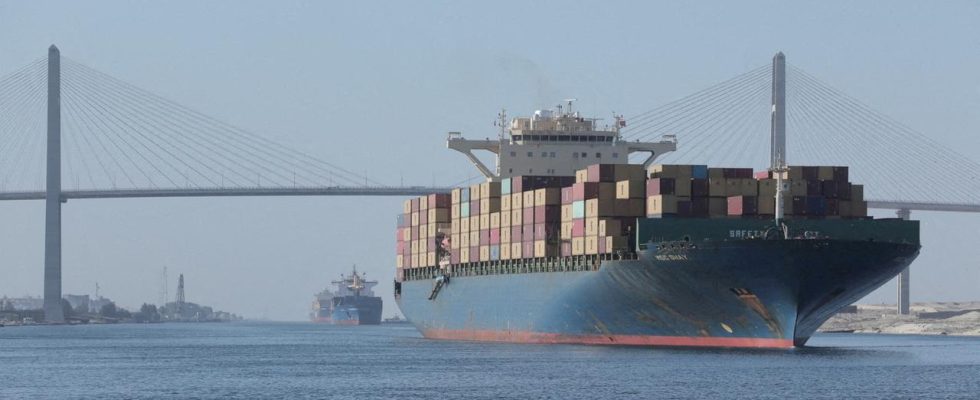Because of the attacks by the Houthi militia, fewer ships are sailing through the Red Sea. The United Nations warns of the consequences for world trade. With the Suez Canal, three global trade routes are currently disrupted.
According to the UN, the movement of goods through the Suez Canal has almost halved since the Yemeni Houthi militia began attacks in the Red Sea two months ago. The United Nations Conference on Trade and Development (UNCTAD) said the volume of freight had fallen by more than 40 percent. At the same time, 39 percent fewer ships were registered through the canal operated by Egypt.
“We are very concerned,” UNCTAD’s head of trade logistics, Jan Hoffmann, told Reuters. “We’re seeing delays, higher costs, higher greenhouse gas emissions.”
The organization, which supports developing countries in world trade, therefore warns of risks such as higher inflation, food insecurity and the increase in greenhouse gas emissions due to the use of alternative but longer routes. Twelve to 15 percent of world trade and 25 to 30 percent of container traffic pass through the Suez Canal. It is the shortest sea connection between Europe and Asia.
Black Sea, Panama Canal and Suez Canal disrupted
Overall, three important global trade routes are now disrupted: Russia’s war against Ukraine, which has been going on for almost two years, and other geopolitical tensions have reshaped the trade routes for oil and grain; in addition to the Suez Canal, the Black Sea is also affected.
Making matters worse for shipping companies is that the water level in the Panama Canal has fallen to its lowest level in decades due to a severe drought. This has a significant impact on the number and size of ships that can still sail through the canal. The total number of transits through the Panama Canal in December was 36 percent lower than a year earlier and 62 percent lower than two years earlier, Hoffmann said.
Ships transport around 80 percent of goods in world trade; in developing countries the percentage is even higher.
No delivery bottlenecks in Germany yet
According to the Ifo Institute, the attacks by the Iran-backed Houthi militia on container ships in the Red Sea have not yet caused the supply chains of the German economy to break. “So far they have not led to delivery bottlenecks for raw materials and intermediate products,” said the head of the Ifo surveys, Klaus Wohlrabe, to the Reuters news agency.
Many ships take the detour via the Cape of Good Hope, which leads to delays and raises fears of disruptive supply chains like during Corona times.

